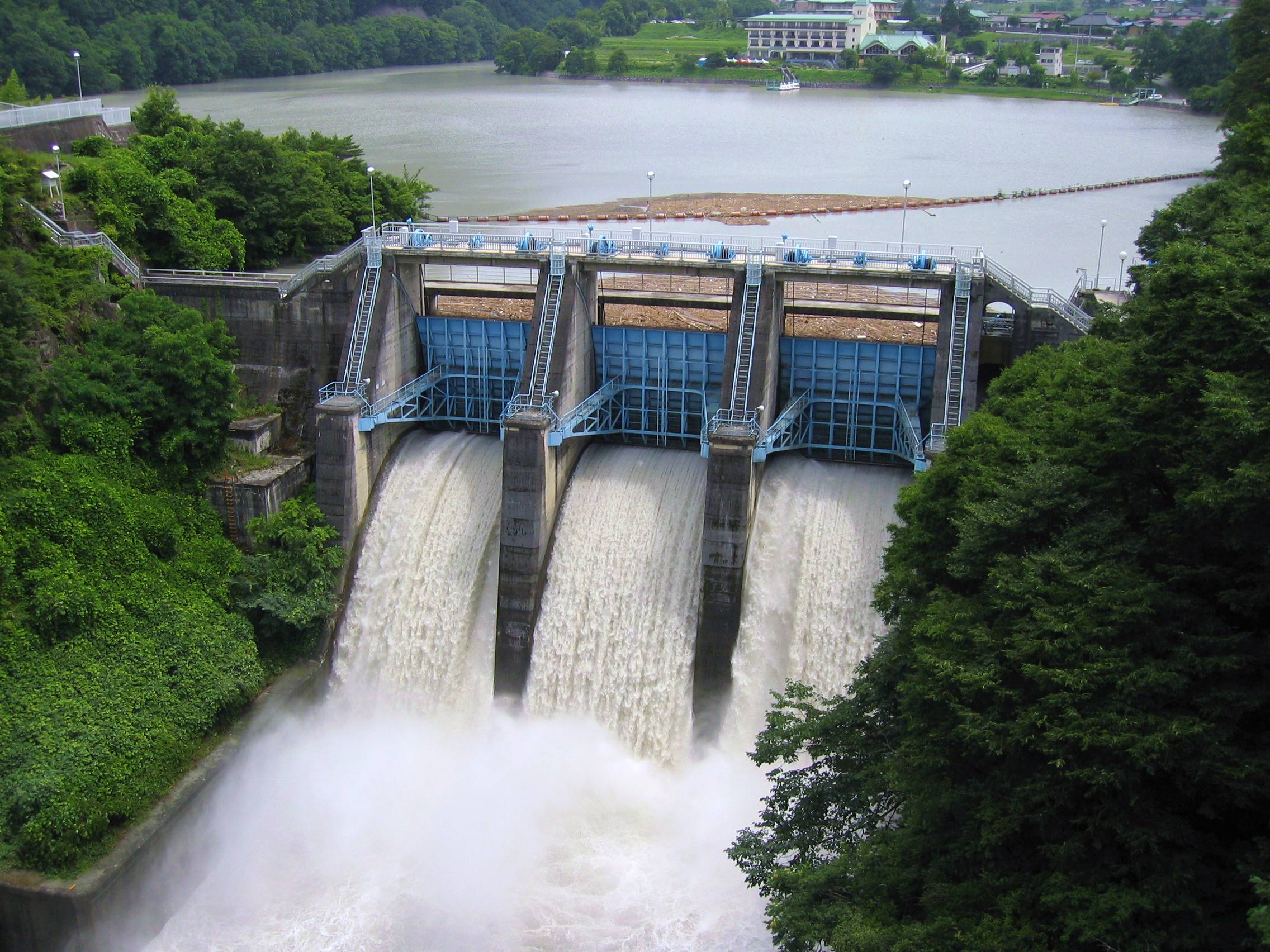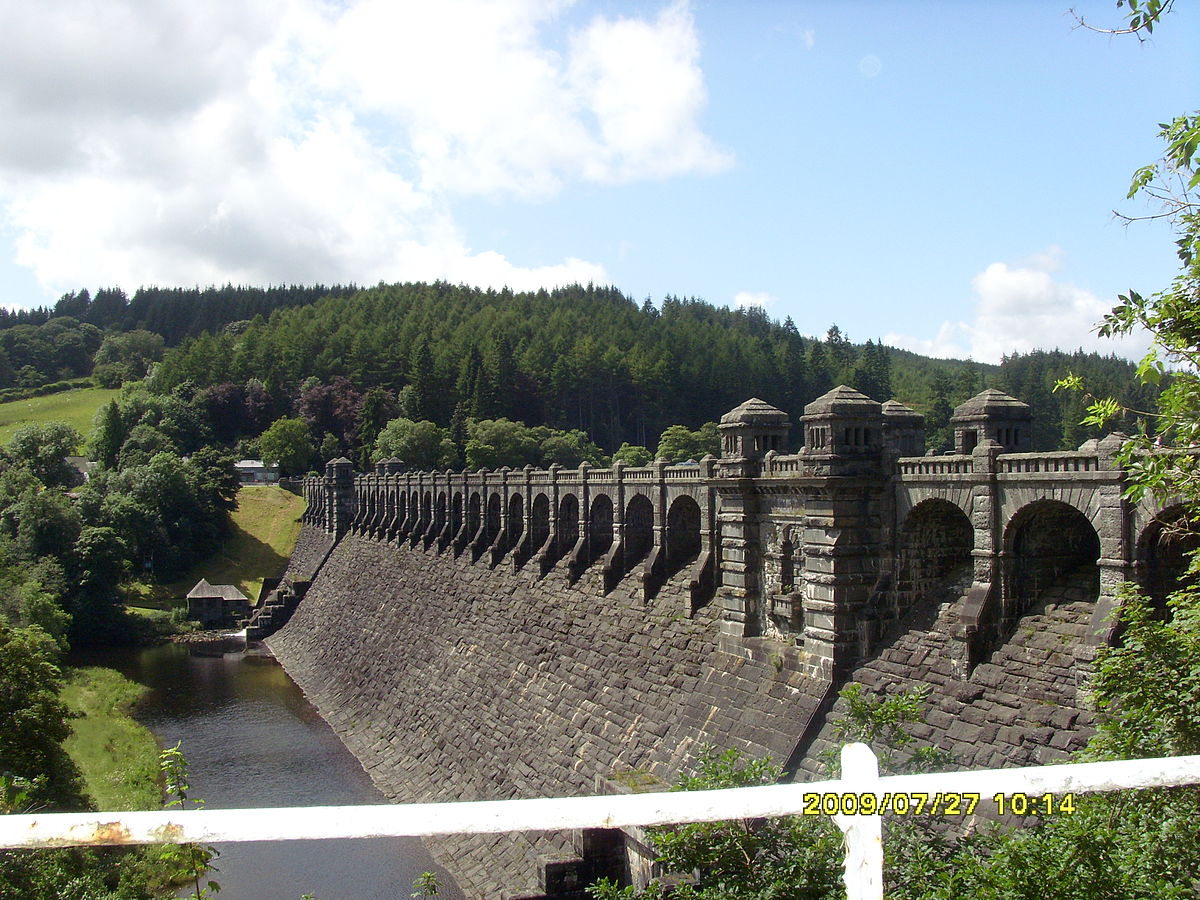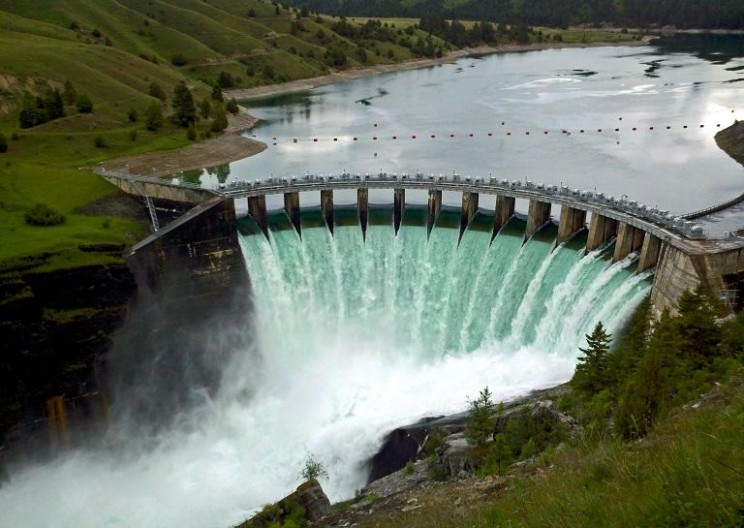
< /kɑrl ˈpi tɛr ˈhɛn rɪk; Danish kɑrl ˈpeɪ tər ˈhɛn rɪk/, 1895–1976, Danish biochemist: Nobel Prize in Medicine 1943.
noun
- a barrier of concrete, earth, etc, built across a river to create a body of water for a hydroelectric power station, domestic water supply, etc
- a reservoir of water created by such a barrier
- something that resembles or functions as a dam
verb dams, damming or dammed
- (tr often foll by up) to obstruct or restrict by or as if by a dam
noun
- the female parent of an animal, esp of domestic livestock
interjection, adverb, adjective
- (often used in combination) a variant spelling of damn (def. 1), damn (def. 2), damn (def. 3), damn (def. 4) damfool; dammit
symbol for
- decametre(s)
noun
- (Carl Peter) Henrik (ˈhɛnrəɡ). 1895–1976, Danish biochemist who discovered vitamin K (1934): Nobel prize for physiology or medicine 1943
“water barrier,” early 14c., probably from Old Norse dammr or Middle Dutch dam, both from Proto-Germanic *dammaz (cf. Old Frisian damm, German Damm), of unknown origin.
“animal mother,” c.1300, variant of dame (q.v.), also originally used, like that word, for “lady, mother;” but meanings diverged into separate spellings by 16c.
late 15c., from dam (n.1). Related: Dammed; damming.
n.
- A barrier against the passage of liquid or loose material, especially a rubber sheet used in dentistry to isolate one or more teeth from the rest of the mouth.
- Danish biochemist. He shared a 1943 Nobel Prize for the discovery of vitamin K.
see water over the dam.
 Liberal Dictionary English Dictionary
Liberal Dictionary English Dictionary


